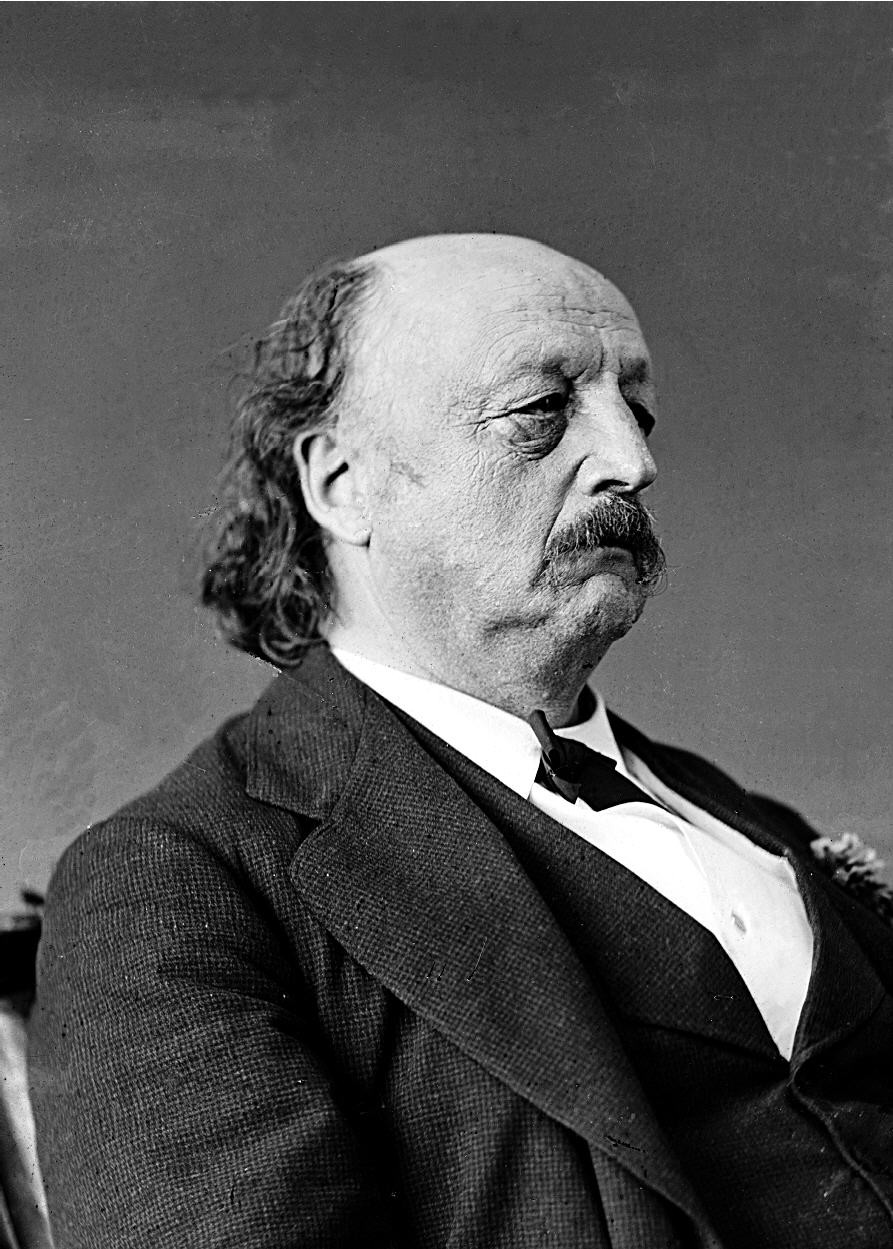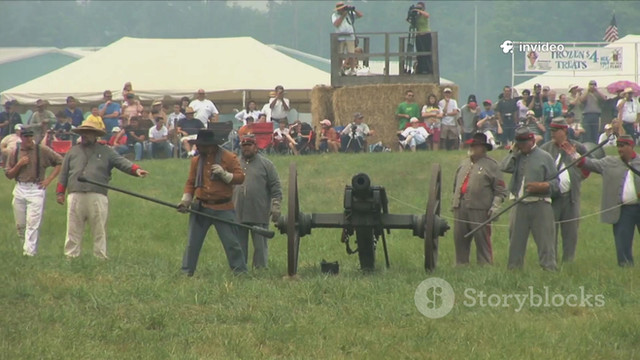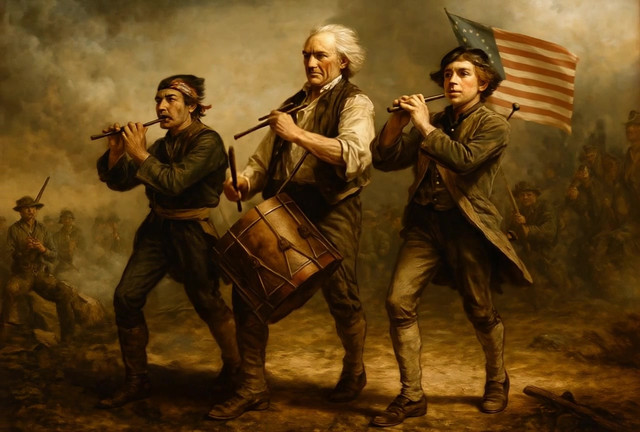HOME | DD
 peterpulp — Ben Butler
peterpulp — Ben Butler

Published: 2017-08-06 17:09:03 +0000 UTC; Views: 3060; Favourites: 9; Downloads: 30
Redirect to original
Description
Politician,union general-American civil warRelated content
Comments: 2

The most notorious political general in the North during the American Civil War, Butler was shrewd but not as a stratagist. He made his name in April 1861 when his Massachusetts troops headed for Washington through Baltimore were attacked by a Confederate favoring mob of citizens. Several soldiers were killed or injured, but Butler had them fire into the mob, killing at least twenty people (the result was the song, "Maryland, My Maryland", the only state song that is about an anti-government event!). The action showed Butler would not stand for nonsense from "Rebel" civilians. It made him an early "hero" to Northerners, but his record would soon become ... shall we say "spotty". On the one hand he proved clever in quasi-political posts, such as being in charge of sections of Virginia the North controlled. Butler soon found a way of jumping ahead "legally" of President Lincoln on the issue of emancipation. He would capture "runaway slaves", and since the Rebels considered slaves property declared them contriband! As a result hundreds of slaves were not returned to their owners but kept to assist the Northern troops!! Later, when the city of New Orleans fell in April 1862, Butler was put in charge as Military Governor of Louisiana. Here his performance gets murky a bit. He certainly improved on the policing of the city and adjoining districts under Federal control, but there were claims (never fully substantiated) that he feathered his nest with looted wealth from Confederate sympathizers. Many southerners said he'd steal even the silver cutlery from Rebel homes. Hence his nickname (which he is still referred to down there) as "Spoons" Butler. He also riled so-called southern chivalry by passing an ordinance. Several Union soldiers complained they were spat upon by the female citizers of New Orleans. General Butler's ordinance said that any woman who insulted Union troops in any way were to be treated like "ladies of the town" (i.e., whores), and arrested. Butler became the most hated man to hold the rank of General in the Union forces. For years Southern chamber pots were made with his face painted on the inside base (where the "crap" would fall) as a comment about his personality.
Still he held on, and then proved no expert on a battlefield. His worst fiasco was in the summer of 1864, when Grant put him in charge of Union forces in Virginia, facing General Pierre Beauregard's Louisianan troops. There was to be a general advance, and Butler only had to get to the mainland to do his work properly. Instead, he moved his men to a peninsula called "Bermuda Hundreds", and the observant Beauregard noticed that the entrance to the mainland did not need many Rebel troops to close it. Lincoln said that Butler and his men looked like they were in a bottle well corked, which they were. Grant could have used the thousands of wasted men under Butler.
In January 1865 Butler ended his career in the army when a scheme he had to blow up a ship and destroy Fort Fisher, North Carolina's last open port, failed (ship blown up but prematurely somehow). Angrily Butler demanded a court martial in Washington and Lincoln reluctantly gave him one. There Butler insisted that Fisher was impregnable, and the scheme failed becasue this was not noted when it was planned. Then news came to the court martial room - elements under Admiral David Porter had successfully captured Fort Fisher that morning! To his credit, Butler saw the idiotic humor of his comments and laughed about it. But he did leave the army as a result.
A politician in Massachusetts, and a successful lawyer, Butler had been a Democrat, but was a war Democrat (supporting the Union). That was why Lincoln supported him for so long, and Grant reluctantly used him. He soon was back in Congress, and served as a Radical Republican Congressman. He would be one of the House Committee, led by Congressman Thaddeus Stevens of Pennsylvania, that successfully impeached President Andrew Johnson in 1868 (thought the President was to survive removal by the U.S. Senate by one single vote). He remained in Congress until the election of 1872, when he was finally defeated. By then many of the Republicans were tired of his antics.
The problem with Butler was he always seemed (even when pushing a legitimate idea) to be looking for the main chance. In the late 1870s he was figuring that he should seek the governorship of Massachusetts as a Democrat again, and use it for the springboard for a go for the White House. He took a position that was to the left on labor problems, but to many it just looked like he was trying to grab votes from ignorant workers. In 1882 he actually wore down the electorate, and won the governorship. Back in that period Massachusetts Governors had terms of only two years, and that meant that in 1884 (when the Massachusetts Constitution said he could not seek re-election) he could try to run for President as a Democrat. It sounded possible, but he managed to blow himself out of the water. He got involved in investigating a scandal dealing with a poor house that was established at Tewksbury, Massachusetts by some female charity. There were rumors that the corpses of the inmates that were not claimed by relatives were sold to medical schools. Butler got deeply involved in this matter, and in the end little happened except he seemed to waste public time and money. It was generally conceded that Butler's ability (had he been allowed to seek re-election) would have been unable to get anywhere.
Still there was the Presidential election. Butler was able to get the nomination of the then radical, "Greenback" party, which favored bi-metallism (like the later Populist Party of the 1890s) and better conditions for labor unions. He hoped to build on this for the Democratic nomination. Unfortunately that year Grover Cleveland was the leading candidate. The former Mayor of Buffalo, and reform Governor of New York, was considered an honest politician, and Butler's rumored career spoke against him when measured to Cleveland's. Had a sex scandal involving Cleveland come out earlier, maybe Butler would have had a chance, but the Maria Halpern scandal broke after Cleveland clinched his nomination. Still Butler ran against Cleveland and Republican James G. Blaine, and Prohibitionist John St. John. Butler did come in third in that tight race, but subsequently (again) rumors suggested that Blaine gave Butler funds so as to take votes away from Cleveland. In any case, despite newspaper gossip that he still hoped to attain the White House, Butler never achieved any further political posts for further real attempts at Presidential nominations.
Butler lived until 1893, a successful lawyer to the end. In 1892 he wrote his memoirs, "Butler's Book", which remains one of the most entertaining book of political memoirs from that period (as Butler gave his opinions on various figures, especially rivals) that he knew first hand). He was a flawed figure to the end, but a fascinating one.
👍: 0 ⏩: 1


























